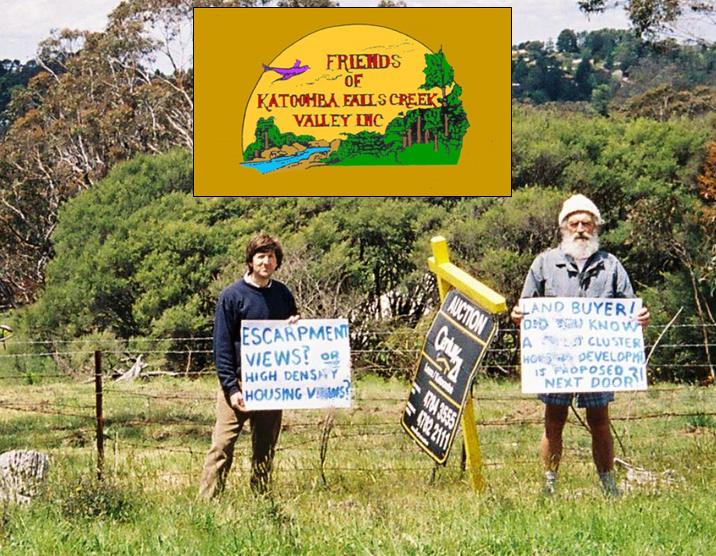Antarctic Treaty
The Treaty Summary of its 14 Articles
.
- No military use shall be made of Antarctica, though military personnel and equipment may be used for peaceful purposes.
- There will be complete freedom of scientific investigation.
- Antarctic Treaty Nations will exchange plans for their scientific programmes, scientific data will be freely available and scientists will be exchanged between expeditions where practical.
- No activities under the Treaty will affect claims to sovereignty of any part of Antarctica made by any nation. All territorial claims are put aside for the duration of the Treaty.
- Nuclear explosions and nuclear waste disposal are banned from Antarctica.
- The Treaty applies to all land and ice shelves south of 60° South, but not to the seas.
- All Antarctic stations and all ships and aircraft supplying Antarctica shall be open to inspectors from any Treaty nation.
- Observers and exchange scientists shall be under the jurisdiction of their own country regardless of which national station they may visit. National laws do not apply to stations or areas, but only to the citizens of those countries.
- Treaty nations will meet to consider ways of furthering the principles and objectives of the Treaty. Attendance at these meetings shall be limited to those countries that are engaged in substantial scientific research activity in Antarctica. Unanimous approval will be necessary for any new measures to become effective (i.e. everyone has to agree).
- All Treaty Nations will try to ensure that no one carries out any activity in Antarctica that is against the Treaty.
- Any dispute by Treaty Nations, if not settled by agreement, shall be determined by the International Court of Justice.
- The Treaty may be modified at any time by unanimous agreement. After 30 years any consultative Party may call for a conference to review the operation of the Treaty. The Treaty may be modified at this conference by a majority decision.
- The Treaty must be legally ratified (agreed to) by any nation wishing to join. Any member of the United Nations may join as well as any other country invited to do so by the Treaty Nations. All notices and records are deposited with the Archives of the United States of America.
- The Treaty translated into English, French, Russian and Spanish was signed on 1st December 1959 by 12 states and entered into force on 23rd of June 1961.
.
Antarctic Treaty of 1959 – in full
.
Done at Washington 1 December 1959
Entered into force 23 June 1961
.
The Governments of Argentina, Australia, Belgium, Chile, the French Republic, Japan, New Zealand, Norway, the Union of South Africa, the Union of Soviet Socialist Republics, the United Kingdom of Great Britain and Northern Ireland, and the United States of America,
RECOGNIZING that it is in the best interests of all of mankind that Antarctica shall always continue for ever to be used exclusively for peaceful purposes and shall never become the scene or object of international discord;
ACKNOWLEDGING the substantial contributions to scientific knowledge resulting from international cooperation in scientific investigation in Antarctica;
CONVINCED that the establishment of a firm foundation for the continuation and development of such cooperation on the basis of freedom of scientific investigation in Antarctica as applied during the International Geophysical Year accords with the interests of science and the progress of all mankind;
CONVINCED also that a treaty ensuring the use of Antarctica only for peaceful purposes only and the continuance of international harmony in Antarctica will further the purposes and principles embodied in the Charter of the United Nations;
.
Have agreed as follows:
.
Article I
- 1. Antarctica shall be used for peaceful purposes only. There shall be prohibited, inter alia, any measure of a military nature, such as the establishment of military bases and fortifications, the carrying out of military manoeuvres, as well as the testing of any type of weapon.
- 2. The present Treaty shall not prevent the use of military personnel or equipment for scientific research or for any other peaceful purpose.
.
Article II
Freedom of scientific investigation in Antarctica and cooperation toward that end, as applied during the International Geophysical Year, shall continue, subject to the provisions of the present Treaty.
.
Article III
- 1. In order to promote international cooperation in scientific investigation in Antarctica, as provided for in Article II of the present Treaty, the Contracting Parties agree that, to the greatest extent feasible and practicable:
- a. information regarding plans for scientific programs in Antarctica shall be exchanged to permit maximum economy of and efficiency of operations;
-
- b. scientific personnel shall be exchanged in Antarctica between expeditions and stations;
-
- c. scientific observations and results from Antarctica shall be exchanged and made freely available.
.
Article IV
Nothing contained in the present Treaty shall be interpreted as:
- a. a renunciation by any Contracting Party of previously asserted rights of or claims to territorial sovereignty in Antarctica;
- b. a renunciation or diminution by any Contracting Party of any basis of claim to territorial sovereignty in Antarctica which it may have whether as a result of its activities or those of its nationals in Antarctica, or otherwise;
- c. prejudicing the position of any Contracting Party as regards its recognition or non-recognition of any other State’s rights of or claim or basis of claim to territorial sovereignty in Antarctica.
No acts or activities taking place while the present Treaty is in force shall constitute a basis for asserting, supporting or denying a claim to territorial sovereignty in Antarctica or create any rights of sovereignty in Antarctica. No new claim, or enlargement of an existing claim, to territorial sovereignty in Antarctica shall be asserted while the present Treaty is in force.
.
Article V
- 1. Any nuclear explosions in Antarctica and the disposal there of radioactive waste material shall be prohibited.
- 2. In the event of the conclusion of international agreements concerning the use of nuclear energy, including nuclear explosions and the disposal of radioactive waste material, to which all of the Contracting Parties whose representatives are entitled to participate in the meetings provided for under Article IX are parties, the rules established under such agreements shall apply in Antarctica.
.
Article VI
The provisions of the present Treaty shall apply to the area south of 60 deg. South Latitude, including all ice shelves, but nothing in the present Treaty shall prejudice or in any way affect the rights, or the exercise of the rights, of any State under international law with regard to the high seas within that area.
.
Article VII
- 1. In order to promote the objectives and ensure the observance of the provisions of the present Treaty, each Contracting Party whose representatives are entitled to participate in the meetings referred to in Article IX of the Treaty shall have the right to designate observers to carry out any inspection provided for by the present Article. Observers shall be nationals of the Contracting Parties which designate them. The names of observers shall be communicated to every other Contracting Party having the right to designate observers, and like notice shall be given of the termination of their appointment.
- 2. Each observer designated in accordance with the provisions of paragraph 1 of this Article shall have complete freedom of access at any time to any or all areas of Antarctica.
- 3. All areas of Antarctica, including all stations, installations and equipment within those areas, and all ships and aircraft at points of discharging or embarking cargoes or personnel in Antarctica, shall be open at all times to inspection by any observers designated in accordance with paragraph 1 of this Article.
- 4. Aerial observation may be carried out at any time over any or all areas of Antarctica by any of the Contracting Parties having the right to designate observers.
- 5. Each Contracting Party shall, at the time when the present Treaty enters into force for it, inform the other Contracting Parties, and thereafter shall give them notice in advance, of
- a. all expeditions to and within Antarctica, on the part of its ships or nationals, and all expeditions to Antarctica organized in or proceeding from its territory;
-
- b. all stations in Antarctica occupied by its nationals; and
-
- c. any military personnel or equipment intended to be introduced by it into Antarctica subject to the conditions prescribed in paragraph 2 of Article I of the present Treaty.
.
Article VIII
- 1. In order to facilitate the exercise of their functions under the present Treaty, and without prejudice to the respective positions of the Contracting Parties relating to jurisdiction over all other persons in Antarctica, observers designated under paragraph 1 of Article VII and scientific personnel exchanged under sub-paragraph 1(b) of Article III of the Treaty, and members of the staffs accompanying any such persons, shall be subject only to the jurisdiction of the Contracting Party of which they are nationals in respect of all acts or omissions occurring while they are in Antarctica for the purpose of exercising their functions.
- 2. Without prejudice to the provisions of paragraph 1 of this Article, and pending the adoption of measures in pursuance of subparagraph 1(e) of Article IX, the Contracting Parties concerned in any case of dispute with regard to the exercise of jurisdiction in Antarctica shall immediately consult together with a view to reaching a mutually acceptable solution.
.
Article IX
- 1. Representatives of the Contracting Parties named in the preamble to the present Treaty shall meet at the City of Canberra within two months after the date of entry into force of the Treaty, and thereafter at suitable intervals and places, for the purpose of exchanging information, consulting together on matters of common interest pertaining to Antarctica, and formulating and considering, and recommending to their Governments, measures in furtherance of the principles and objectives of the Treaty, including measures regarding:
- a. use of Antarctica for peaceful purposes only;
-
- b. facilitation of scientific research in Antarctica;
-
- c. facilitation of international scientific cooperation in Antarctica;
-
- d. facilitation of the exercise of the rights of inspection provided for in Article VII of the Treaty;
-
- e. questions relating to the exercise of jurisdiction in Antarctica;
-
- f. preservation and conservation of living resources in Antarctica.
- 2. Each Contracting Party which has become a party to the present Treaty by accession under Article XIII shall be entitled to appoint representatives to participate in the meetings referred to in paragraph 1 of the present Article, during such times as that Contracting Party demonstrates its interest in Antarctica by conducting substantial research activity there, such as the establishment of a scientific station or the despatch of a scientific expedition.
- 3. Reports from the observers referred to in Article VII of the present Treaty shall be transmitted to the representatives of the Contracting Parties participating in the meetings referred to in paragraph 1 of the present Article.
- 4. The measures referred to in paragraph 1 of this Article shall become effective when approved by all the Contracting Parties whose representatives were entitled to participate in the meetings held to consider those measures.
- 5. Any or all of the rights established in the present Treaty may be exercised as from the date of entry into force of the Treaty whether or not any measures facilitating the exercise of such rights have been proposed, considered or approved as provided in this Article.
.
Article X
Each of the Contracting Parties undertakes to exert appropriate efforts, consistent with the Charter of the United Nations, to the end that no one engages in any activity in Antarctica contrary to the principles or purposes of the present Treaty.
.
Article XI
- 1. If any dispute arises between two or more of the Contracting Parties concerning the interpretation or application of the present Treaty, those Contracting Parties shall consult among themselves with a view to having the dispute resolved by negotiation, inquiry, mediation, conciliation, arbitration, judicial settlement or other peaceful means of their own choice.
- 2. Any dispute of this character not so resolved shall, with the consent, in each case, of all parties to the dispute, be referred to the International Court of Justice for settlement; but failure to reach agreement on reference to the International Court shall not absolve parties to the dispute from the responsibility of continuing to seek to resolve it by any of the various peaceful means referred to in paragraph 1 of this Article.
.
Article XII
- 1a. The present Treaty may be modified or amended at any time by unanimous agreement of the Contracting Parties whose representatives are entitled to participate in the meetings provided for under Article IX. Any such modification or amendment shall enter into force when the depositary Government has received notice from all such Contracting Parties that they have ratified it.
- b. Such modification or amendment shall thereafter enter into force as to any other Contracting Party when notice of ratification by it has been received by the depositary Government. Any such Contracting Party from which no notice of ratification is received within a period of two years from the date of entry into force of the modification or amendment in accordance with the provision of subparagraph 1(a) of this Article shall be deemed to have withdrawn from the present Treaty on the date of the expiration of such period.
- 2a. If after the expiration of thirty years from the date of entry into force of the present Treaty, any of the Contracting Parties whose representatives are entitled to participate in the meetings provided for under Article IX so requests by a communication addressed to the depositary Government, a Conference of all the Contracting Parties shall be held as soon as practicable to review the operation of the Treaty.
- b. Any modification or amendment to the present Treaty which is approved at such a Conference by a majority of the Contracting Parties there represented, including a majority of those whose representatives are entitled to participate in the meetings provided for under Article IX, shall be communicated by the depositary Government to all Contracting Parties immediately after the termination of the Conference and shall enter into force in accordance with the provisions of paragraph 1 of the present Article
- c. If any such modification or amendment has not entered into force in accordance with the provisions of subparagraph 1(a) of this Article within a period of two years after the date of its communication to all the Contracting Parties, any Contracting Party may at any time after the expiration of that period give notice to the depositary Government of its withdrawal from the present Treaty; and such withdrawal shall take effect two years after the receipt of the notice by the depositary Government.
.
Article XIII
- 1. The present Treaty shall be subject to ratification by the signatory States. It shall be open for accession by any State which is a Member of the United Nations, or by any other State which may be invited to accede to the Treaty with the consent of all the Contracting Parties whose representatives are entitled to participate in the meetings provided for under Article IX of the Treaty.
- 2. Ratification of or accession to the present Treaty shall be effected by each State in accordance with its constitutional processes.
- 3. Instruments of ratification and instruments of accession shall be deposited with the Government of the United States of America, hereby designated as the depositary Government.
- 4. The depositary Government shall inform all signatory and acceding States of the date of each deposit of an instrument of ratification or accession, and the date of entry into force of the Treaty and of any modification or amendment thereto.
- 5. Upon the deposit of instruments of ratification by all the signatory States, the present Treaty shall enter into force for those States and for States which have deposited instruments of accession. Thereafter the Treaty shall enter into force for any acceding State upon the deposit of its instruments of accession.
- 6. The present Treaty shall be registered by the depositary Government pursuant to Article 102 of the Charter of the United Nations.
.
Article XIV
The present Treaty, done in the English, French, Russian and Spanish languages, each version being equally authentic, shall be deposited in the archives of the Government of the United States of America, which shall transmit duly certified copies thereof to the Governments of the signatory and acceding States.
.
Treaty Signatory Nations
.
.. in date order of signing the treaty:
.
OS – Original Signatory
CP – Consultative party – Countries that play an active role in Antarctica – are engaged in substantial scientific research activity – only the consultative parties have voting rights and can make decisions about Antarctica.
AS – Acceding State – Countries that agreed to the Treaty after the original signing in 1959
|
State / Country |
Date |
Status |
Date when Acceding State became Consultative Party |
|
| 1 | United Kingdom | 31 May 1960 | OS/CP | |
| 2 | South Africa | 21 June 1960 | OS/CP | |
| 3 | Belgium | 26 July 1960 | OS/CP | |
| 4 | Japan | 4 August 1960 | OS/CP | |
| 5 | United States of America | 18 August 1960 | OS/CP | |
| 6 | Norway | 24 August 1960 | OS/CP | |
| 7 | France | 16 September 1960 | OS/CP | |
| 8 | New Zealand | 1 November 1960 | OS/CP | |
| 9 | Russia 1 | 2 November 1960 | OS/CP | |
| 10 | Poland | 8 June 1961 | AS/CP | 29 July 1977 |
| 11 | Argentina | 23 June 1961 | OS/CP | |
| 12 | Australia | 23 June 1961 | OS/CP | |
| 13 | Chile | 23 June 1961 | OS/CP | |
| 14 | Czech Republic 2 | 14 June 1962 | AS | |
| 15 | Slovak Republic 2 | 14 June 1952 | AS | |
| 16 | Denmark | 20 May 1965 | AS | |
| 17 | Netherlands | 30 March 1967 | AS/CP | 19 November 1990 |
| 18 | Romania | 15 September 1971 | AS | |
| German Democratic Republic 3 | 19 November 1974 | AS/CP | 5 October 1987 | |
| 19 | Brazil | 16 May 1975 | AS/CP | 12 September 1983 |
| 20 | Bulgaria | 11 September 1978 | AS/CP | 25 May 1998 |
| 21 | Germany, Federal Republic of | 5 February 1979 | AS/CP | 3 March 1981 |
| 22 | Uruguay | 11 January 1980 | AS/CP | 7 October 1985 |
| 23 | Papua New Guinea 4 | 16 March 1981 | AS | |
| 24 | Italy | 18 March 1981 | AS/CP | 5 October 1987 |
| 25 | Peru | 10 April 1981 | AS/CP | 9 October 1989 |
| 26 | Spain | 31 March 1982 | AS/CP | 21 September 1988 |
| 27 | China, People’s Republic of | 8 June 1983 | AS/CP | 7 October 1985 |
| 28 | India | 19 August 1983 | AS/CP | 12 September 1983 |
| 29 | Hungary | 27 January 1984 | AS | |
| 30 | Sweden | 24 April 1984 | AS/CP | 21 September 1988 |
| 31 | Finland | 15 May 1984 | AS/CP | 9 October 1989 |
| 32 | Cuba | 16 August 1984 | AS | |
| 33 | Korea, Republic of | 28 November 1986 | AS/CP | 9 October 1989 |
| 34 | Greece | 8 January 1987 | AS | |
| 35 | Korea, Democratic People’s Republic of | 21 January 1987 | AS | |
| 36 | Austria | 25 August 1987 | AS | |
| 37 | Ecuador | 15 September 1987 | AS/CP | 19 November 1990 |
| 38 | Canada | 4 May 1988 | AS | |
| 39 | Colombia | 31 January 1989 | AS | |
| 40 | Switzerland | 15 November 1990 | AS | |
| 41 | Guatemala | 31 July 1991 | AS | |
| 42 | Ukraine | 28 October 1992 | AS | 24 June 2001 |
| 43 | Turkey | 25 January 1996 | AS | |
| 44 | Venezuela | 24 March 1999 | AS | |
| 45 | Estonia | 17 May 2001 | AS | |
| 46 | Belarus | 27 December 2006 | AS | |
| 47 | Monaco | 30 May 2008 | AS | |
| 48 | Portugal | 29 January 2010 | AS |
Notes
1 Known as the Soviet Union until December 1990.
2 Succeeded to the Treaty as part of Czechoslovakia which separated into two republics on 1 January 1993.
3 Became united with Federal Republic of Germany on 3 October 1990 (now known as Germany).
4 Succeeded to the Treaty after independence from Australia.
.
Further Reading:
.
[1] Antarctic Treaty updates , ^http://cns.miis.edu/inventory/pdfs/antarc.pdf [>Read Document (PDF, 164kb)]








